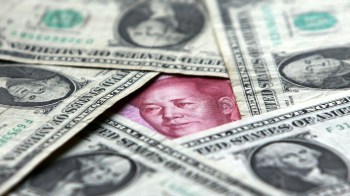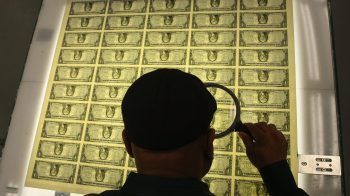David Brancaccio: China and Japan will increasingly trade each other’s currencies directly, without using the U.S. dollar to set the exchange rate. The change, starting Friday, is a new step toward a world where the U.S. dollar is not last word in global currencies. It’s a bit like buying a house without a realtor or a stock without a broker.
Joining us for more context is the BBC’s Roland Buerk in Tokyo. Good morning, Roland.
Roland Buerk: Good morning.
Brancaccio: So how much trading is there between Japan and China via the U.S. dollar?
Buerk: Well, a very large amount. China has overtaken the United States to be Japan’s biggest trading partner — trade has increased exponentially over the last 10 years. So what’s happening now is that the two countries have agreed that from June 1, there can be direct trading between the yen and the yuan. The idea is to cut out the middleman.
Brancaccio: The middle man being the U.S. dollar indeed. What implication does this have for the dollar as what’s called a reserve currency, the be-all and end-all currency around the world?
Buerk: In terms of the dollar, it means that increasingly the dollar will be used less in Asia. But perhaps one good side for the United States in all of this is that as the yuan becomes more convertible, its value should increase — that’s what the United States has been pushing for because it says that the weakness of the yuan has given China an unfair advantage up to now.
Brancaccio: Because the stronger the Chinese currency, the more competitive U.S. goods might be if sold within China?
Buerk: That’s the complaint of the United States and other western countries as well. With the currency being artificially low, it means that Chinese goods are much cheaper than they should be when they are sold in the United States. It means that Chinese labor is cheaper, so its easier for firms and workers in China to compete against American workers. So this is a step towards, perhaps, that situation easing a bit for the United States.
Brancaccio: Roland Buerk, BBC in Tokyo, thank you very much.
Buerk: Thank you.
There’s a lot happening in the world. Through it all, Marketplace is here for you.
You rely on Marketplace to break down the world’s events and tell you how it affects you in a fact-based, approachable way. We rely on your financial support to keep making that possible.
Your donation today powers the independent journalism that you rely on. For just $5/month, you can help sustain Marketplace so we can keep reporting on the things that matter to you.


















